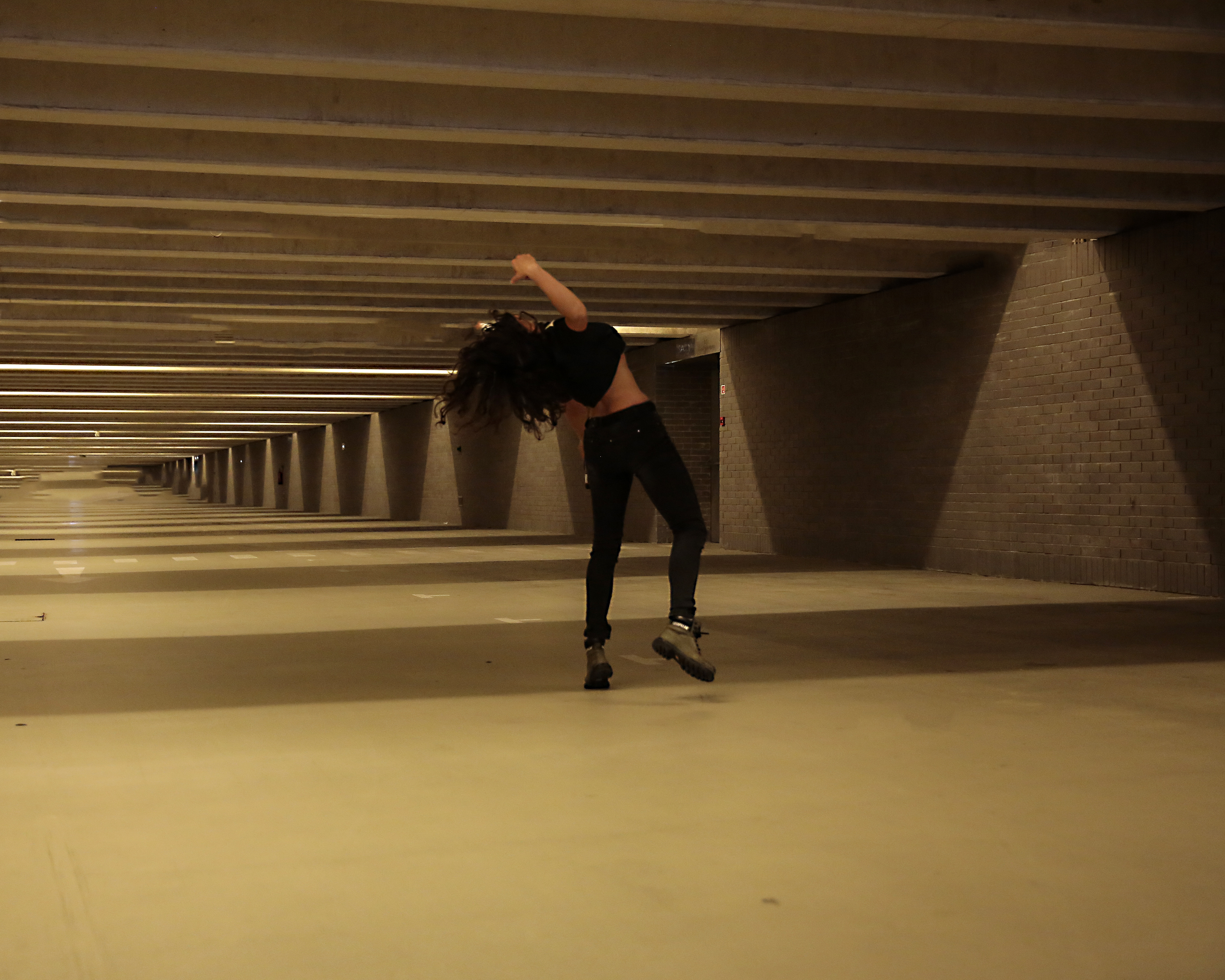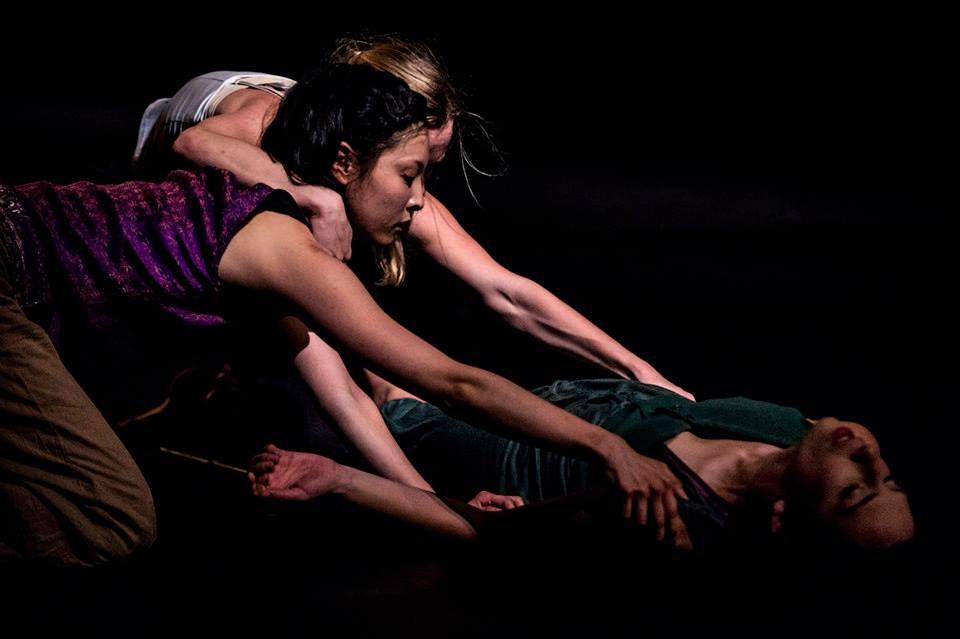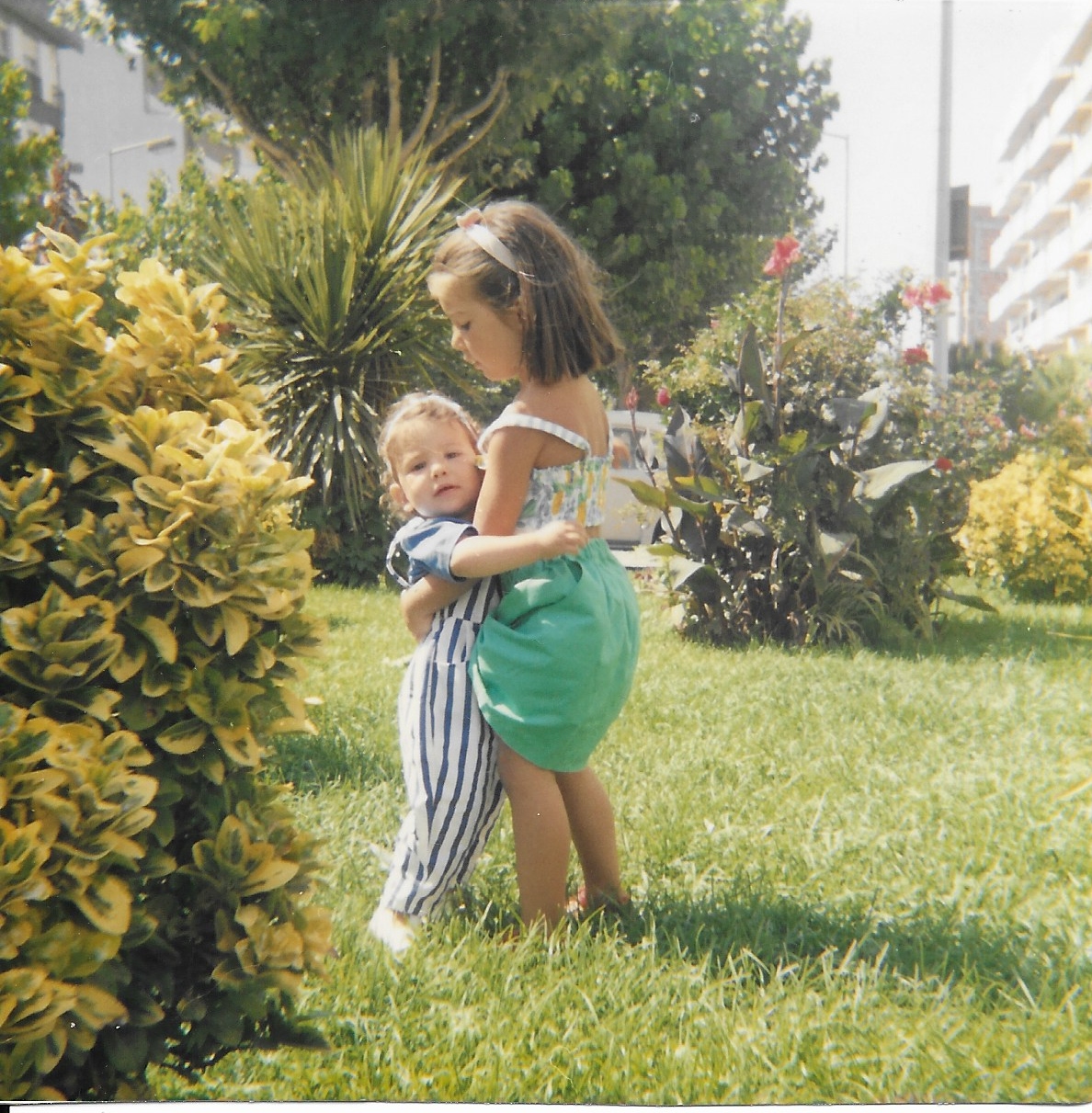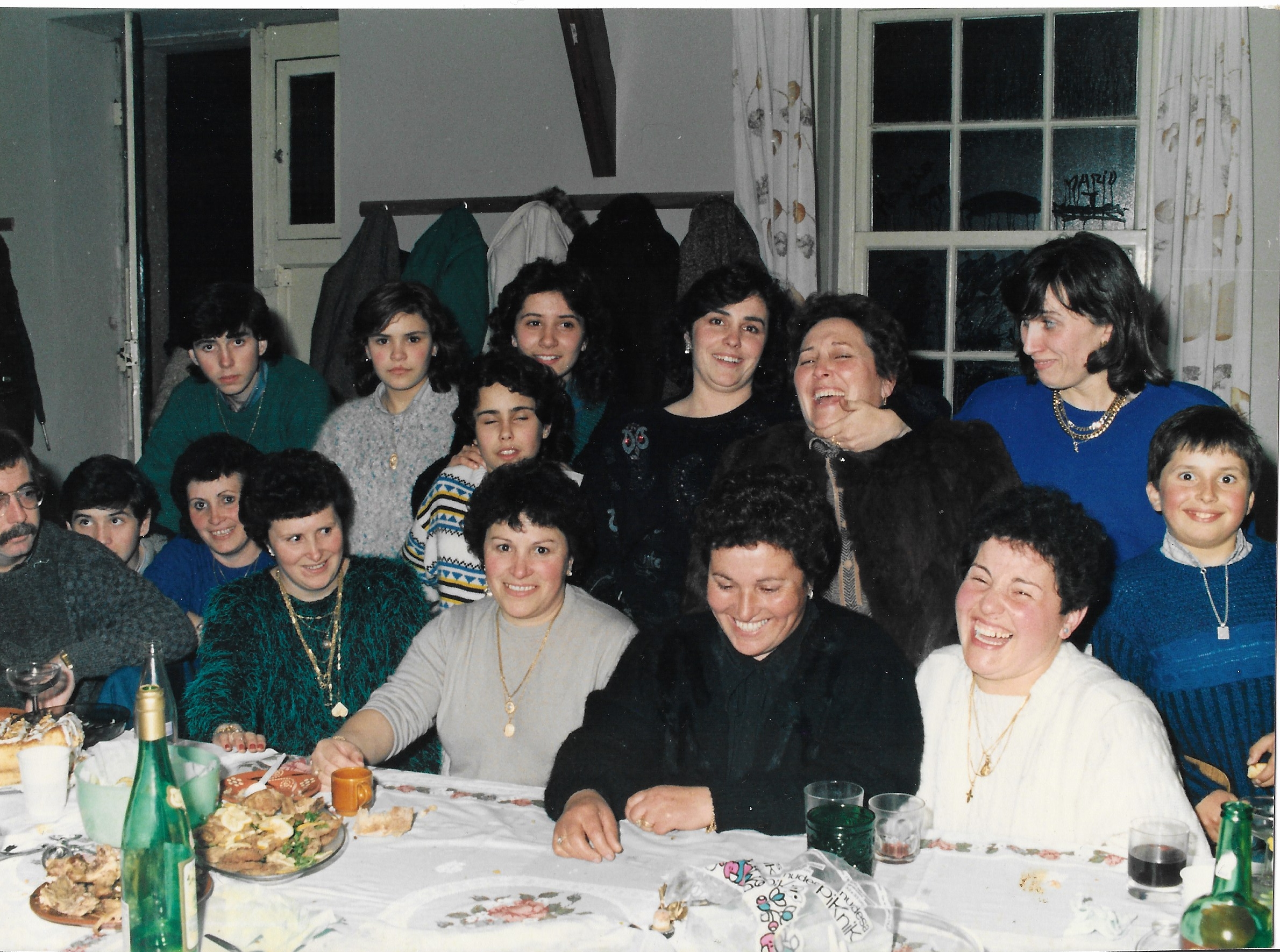The CASSANDRA Project is intended as a space for Cassandras in our community to speak their truth. It’s a space for female-identifying myth-busters to speak out and up for women, LGBTQ, and other marginalized peoples. While there are many columns and blogs that focus on women whose success is defined by the patriarchal values of wealth, power and prestige within the system, this column is dedicated to celebrating women for just being, a political act in and of itself in today’s world. It is a space to share the ways in which female-identifying people have maintained their relationship to the divine feminine, intuition and creativity outside the status quo, and in spite of male dominated industries and patriarchal systems.
This column is about, for and dedicated to all of the daughters of the witches you didn’t burn.
CASSANDRA#: 7
Astrological sign: Virgo
Favorite time of day: Morning
Natural habitat: any warm sunny place!
Most easily elicited emotion: Surprise
Favorite potion: Cacao
Sara Silva is a Portuguese dance artist, choreographer and educator living in Porto, Portugal.

Sara Silva, dancer and choreographer. (Photo courtesy of: Sara Silva)
What are some topics you address in your art?
The word “gender” in Portuguese has two meanings. It means gender, and it means,“your way.”
Last year I made a piece called Don’t make Violence your Gender (your way).
It was a collaborative process, as always. We started with this idea of being bullied and how one sees violence/where it happens in one’s life. What is violence? Is it violent when someone calls you stupid? When someone does not reply or ignores you? What are your boundaries? I was very surprised (even to discover in myself ) that in some areas I have no boundaries. We really went deep into this idea of limits – where they are challenged or broken down.
We used gestures because they are a very accessible movement language for an audience. They are movements that exist in our every day life. Then, we approached this material through emotions. I chose some basic emotions and each dancer represented a different one. In the beginning they were just emotions. Very childish. Something I learned from my sister and, later students, is that emotions are not good or bad, they are just child like until they come into power dynamics and interactions. For example, anger and love had a duet together. It is fascinating how innocent love can be until you bring wrath or jealousy into the mix. I learned so much from my students.
Its important to process these emotions. This kind of work really effects us. How do we approach frustration? How kind are we to our colleagues? If I’m facilitating the space, I need to be creating containers for this exploration. It is very mother like.
We collaborated with an association that works with violence, and they did parallel work with the audience asking people how they feel about these topics. The therapist also came in at the beginning of our process and used some tools with my students. One of the first rehearsals, I brought in a video about what it means to be a man; what is strength, what is vulnerability, what is macho. All of this connected together into something very rich.
The new piece I’m generating with my students started because we danced in the Biennial of Arts. They appreciated that our work provided social reflection on something that is so familiar. There was an exhibit at the Biennial on refugees that caught my attention. This theme has been present for so long in Europe, but it feels forgotten. We are so close to the sea at the Academy where I work, and the students have a very strong relationship with it. I felt it was worth exploring what is happening in the sea right now. The sea represents so much: travel, imagination, hopes, expansion… There is a saying here that people by the seaside are more prone to travel and discovery than people in the mountains because they have the horizon and you always want to find out what is out there.
Yet there are these horrible things happening in the sea. This is a challenge to address with teenagers. It is an ongoing issue, and I really wish to work with them and see what they bring to me on the topic. I started by sharing a video that focuses on the transit – not the beginning nor end – but the middle. The part at sea. And the abuse and how inhumane we can be due to politics toward people in this position.
Just yesterday I asked them to lay on the ground like a dead body, and one of my students questioned why someone would pick up a dead body.
When these things pop up it is like red lights flashing. What is inside that head? And how can we use dance to shape these ideas that one does or does not have?
I told them to go home and read about refugees and come back with something they want to tell me on this topic.
If the mantra is be the change you want to see in the world, then the work should be planting the seed of change you want to see in the world.
They are the future.

Sara Silva, dancer and choreographer. (Photo courtesy of: Sara Silva)
What is your feminist kill joy? A truth you speak up about that other people don’t want to hear?
We are raised with many euphemisms. Most of the time, I don’t like them.
I don’t think you should find a word that intends to heal by skirting around effecting the ego. If you have a problem in your ego, you need to feel it in your ego. I love it when people tell me straight – no curves – that I did not do something right, or they are pissed. I really like that kind of direct transparency.
This is a quality that women have access to because women need a lot of communication. We speak a lot. We speak out — our emotions, our feelings.
We need to keep doing that. Until we can finally teach everybody else to do it too. To feel comfortable sharing. And show that this is the only way that your soul can understand what the other person is and wants.
How can I accept someone who does not talk to me? Who cannot say to me I feel sick, or right now I feel bored, I need to go home etc. How am I supposed to know that? That is a lot of information. How much we keep inside that we could put outside, and how much fear we have to put it outside.
Sometimes I feel that I want to bring all this information outside and I can’t because I’m scared of hurting the other person, but there is a voice inside me that is very much louder saying DO IT. Just do it. All it needs is a trigger. I might sound a little bit selfish, but its so important because it is important to me.
What is a revolution really? I want the men to listen to me and to understand my words. I want women to understand my words. I want people to understand my insides. And I want to speak freer.
This is what is important to me, for the overall growth of humanity. To speak freely what about we need, what we want, what we like and what we don’t like.
The other person is free to listen – or not.

Sara Silva with her sister when younger. (Photo courtesy of: Sara Silva)
Where do you find discrimination toward women or marginalized people suffering from injustices in your life and what do you do?
Portugal is still a very Catholic country. Its not as ubiquitous as it was before, but there still exists this relationship dynamic that the man is the only valuable expression. This one witness’s every day. I still see many very poorly empowered women. It is apparent in the way they value their bodies, in the way they walk. This is also being marginalized. There is so much need for attention for women that belong to a certain religious idea, because even though this strong religious practice is no longer imposed, this value and concept of power from the church as a large part of the society still embraces.
I see it, and all I can do is speak freely to address these differences. I help host women’s circles where we can openly share and bring out these issues. Even amongst your closest friends sometimes it is hard for someone to bring a sensitive topic up, but when there is a larger diverse group of women coming together, being present, sharing and exchanging, more comes out.
How often do you speak about these very fragile topics; how your body feels, female health, your frustrations, feeling silenced, mothering, your relationships with your partner, your relationships at work? It is so valuable. It is easy to get stuck believing certain relationships will always be the same. Having an external view can bring some perspective on power dynamics that you cannot see. Its like therapy.
Gatherings of women are very important.
It goes back to this older way of female relating. We can all participate in doing something about these issues this way. By coming together, being present, and sharing. Tapping into how this can really help started not so long ago for me. It is so valuable.
I feel that women actually have less attention, particularly the traditional woman who is now in her 50s. How much actual attention do we give this demographic? We still have a system that allows violence to happen in the home with no consequences. The penalty is really really low. We have a lot of women who continue to be shut down and are quiet about it. They are quiet about their lives. They don’t accept these things.
It’s not about forcing anyone to change. It’s about creating safe space for people to speak. For me this is what I can do right now. Offer space to share and really be present with the women in my own life and promote ways of being and moving through the world that are open. It ripples outward.

Sara Silva and family. (Photo courtesy of: Sara Silva)
How is your body in contact with the world?
Everything that I do happens by engaging the body. My body often says more about me than I know about myself.
Sometimes I’m surprised when someone tells me that I am a bubble of lightness, or cranky, etc. My body is giving a vibe. It is an open door to the soul. More open than we imagine. I discovered that by taking care of myself I can take better care of everyone else. I feel healthier and more centered.
It took me a while to get to this point.
In dance culture – ballet especially — you are surprisingly disconnected from the body.
Now when I add somatics I gain another perspective. The more I discover my body through somatics, especially yoga and meditation, I discover anxiety lodged in places I can finally pin point and work on. Without that I felt lost. I got so much feedback in my training about tightness and tension, but I could not really address it because I could not feel it.
Then suddenly through this breathing and postures, the places in my body that were not so happy started communicating with me more fluidly because I could feel them from inside.
I think this is a very long and ongoing process. To understand what the body is telling you.
I have a lot of respect for my body because it suffered so many injuries I did not care for. Now every time something comes up I ask, Where does it come from? What is going on? Why am I not at ease at this point in my body? Its a psycho somatic thing. Something happens and it goes straight to my body. This is amazing. It is line-one communication.
Bodies are wondrous. We are blessed to have this vehicle to express everything we want. I don’t feel limited at all.
What is it like being a female in the dance scene here in Portugal?
We are very dispensable as women — every where in the world this is true — because we are so many. There is always another female dancer.
This mentality goes against what I believe. I believe each human being is unique. So, yes, you can be replaced to do a part in a piece, but can you be replaced in a group? And how do you work in that group? What is important to you? The group? Or the final result – the piece? I see this a lot.
In my own perceptions of what a creative process should be it is about the group. It’s not about the piece. The piece can also be replaced and modified.
Overall as a female dancer I feel I am just another one. That led me to find other ways of working. I did not like trying to be the perfect image/fit of somebody’s idea of a company. I would prefer them to know me.
Sometimes I feel an interview is more valuable than an audition where you just do the steps. Especially if it is a long process. If there is no process, and you are just sticking someone into a score, then its different.
Here in Porto we have many female artists and in leadership roles. What I don’t like is the stereotype though that sometimes comes with it. The stereotype that women are emotional and therefore unfair. That they don’t rationalize things. I hear sometimes this complaint when one wasn’t chosen for something led by a woman. This could be true, but often it feels derived from a stereotype that is denigrating.
 NOLAbeings
Multimedia artist Claire Bangser created NOLAbeings as a portrait-based story project that marries...
NOLAbeings
Multimedia artist Claire Bangser created NOLAbeings as a portrait-based story project that marries...
 Data corner: Adobe Suite (create a PDF, social media graphic, presentation, edit a photo and video
Data corner is where you go to work with analytics and top tech skills. It takes on everything from PERL and SQL to Canva and Sprout Social.
Data corner: Adobe Suite (create a PDF, social media graphic, presentation, edit a photo and video
Data corner is where you go to work with analytics and top tech skills. It takes on everything from PERL and SQL to Canva and Sprout Social.
